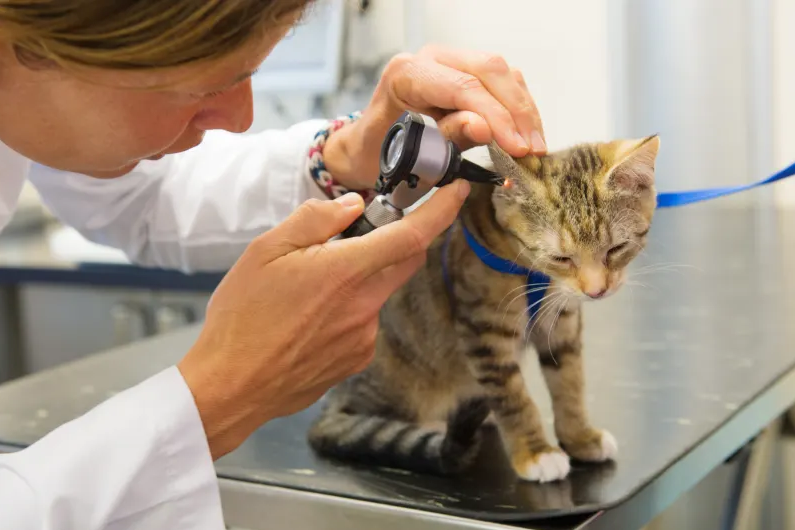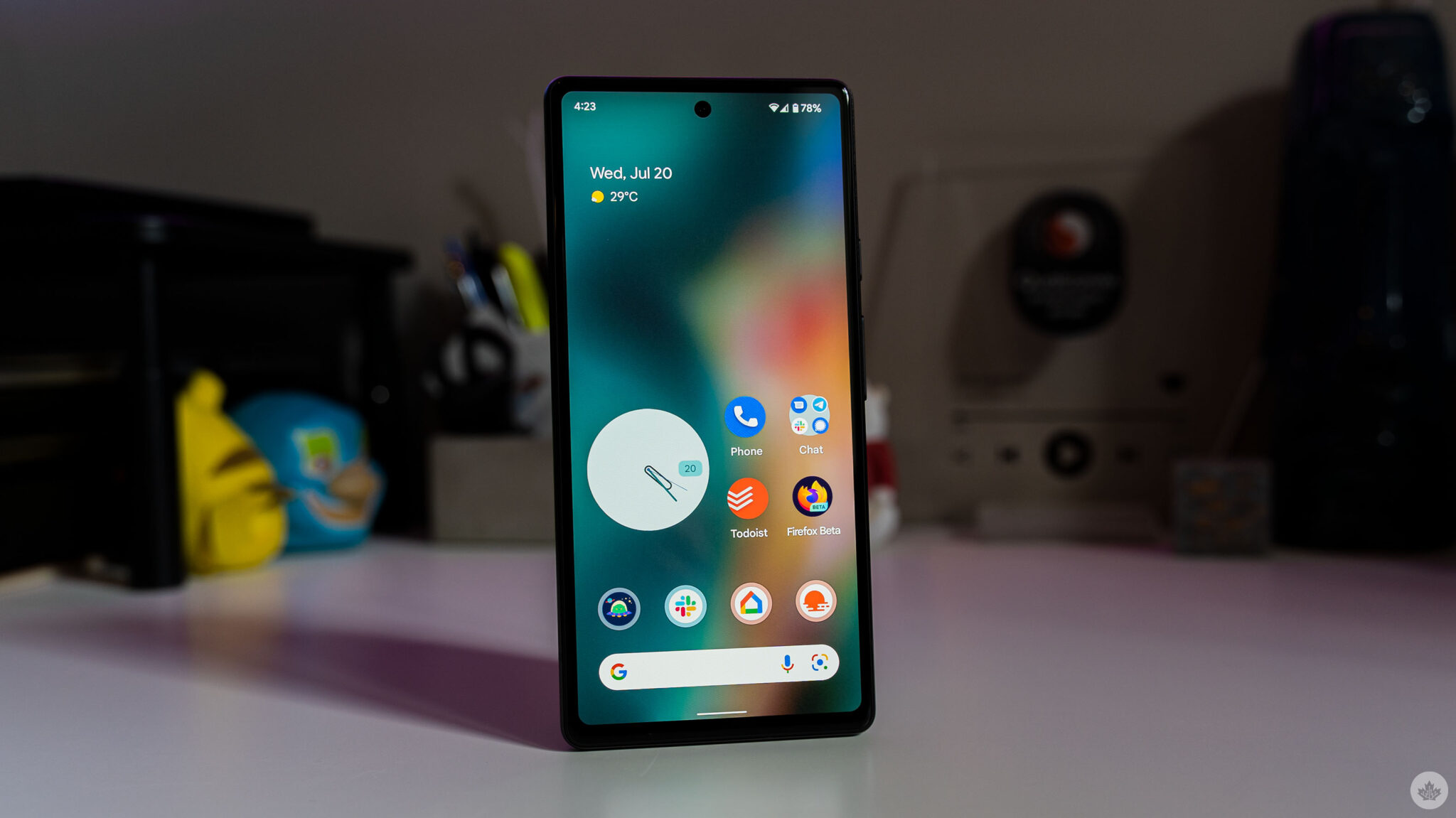FINANCE
Is Pet Insurance Cheaper For Cats?


As a pet owner, you want to make sure your furry friend gets the best possible treatment in the event of an illness or injury. Pet insurance is a great way to cover unexpected veterinary expenses and ensure your pet is treated quickly.
You may be wondering if pet insurance is more affordable for cats than for other pets as a cat owner.
In this article, we’ll look at Is pet insurance cheaper for cats? and compare it to that of other pets.
Is pet insurance cheaper for cats?
First of all, it is important to understand what pet insurance covers. Pet insurance covers the cost of accidents, illnesses, and routine treatments. Pet insurance policies are usually flexible, so you can choose the coverage that fits your pet’s needs and your budget. Pet insurance can cover everything from routine checkups to surgeries, medications and hospital bills.
We compare pet insurance prices for dogs and cats. The average price of pet insurance for cats is generally lower than for dogs. That’s because cats are generally considered less risky than dogs. This is because cats are generally healthier, have fewer genetic health problems, and are less prone to accidents.
Cats are also smaller than dogs, which means medical procedures and medications can be cheaper. In addition, cats tend to live indoors, which reduces their risk of contracting infectious diseases and other illnesses.
When purchasing insurance for pets, it’s important to consider deductibles, premiums and maximums. The deductible is the amount you must pay before the insurer will reimburse you.
The premium is the amount you pay each month or year for insurance, and the policy limit is the maximum amount the insurer will pay for covered expenses.
Most pet insurance companies offer a range of policies that you can choose from depending on your budget and your pet’s needs. The cost of pet insurance for cats can range from $10 to $50 per month, depending on the coverage you choose.
Which breed of cat is the cheapest to insure?
It may be cheaper to insure cat breeds that have fewer health problems and a lower risk of accidents and injuries. Here are some cat breeds that are less expensive to insure:
Mixed breed
Mixed breed cats, also known as domestic cats or domestic cats with long hair, can be a good choice for those looking for a cat that is less expensive to insure. Mixed-breed cats may have different genetic backgrounds and are therefore less prone to breed-related health problems.
Since mixed-breed cats can have different backgrounds, it is important to pay attention to their overall health and well-being. Regular vet visits and preventative care will help maintain the cat’s health and reduce the risk of unexpected vet bills. It will cost $30 per month to insure a nixed-breed cat
Siamese
Siamese cats are generally considered the healthiest cats with a life expectancy of 15 to 20 years, making them less expensive to insure than other breeds. In addition, Siamese cats are usually companion cats, which can reduce the risk of accidents and injuries.
It should be noted, however, that Siamese cats can be prone to certain health issues, such as dental problems, respiratory problems, and eye problems. These problems can drive up the cost of pet insurance for Siamese cats. The average premium for Siamese cats is about $30 per month.
Sphynx
Sphynx cats, known for their hairlessness, are generally healthy cats with few breed-related health problems. They also tend to be indoor cats, which can reduce the risk of accidents and injuries.
Insurance for Sphynx cats is less expensive than for other breeds, but it is important to find a policy that provides comprehensive coverage for the cat’s individual needs. Insuring a Sphynx costs only $7 per month.
Exotic
Exotic-shorthair cats, also known as “short-haired Persians,” are a cat breed that is less expensive to insure. They are known for their round faces and short, fluffy coats, making them an attractive breed for many cat owners. Exotic shorthair cats are generally healthy and have fewer health problems than long-haired Persian cats.
The average monthly fee for an exotic shorthair cat is around $29.58.
Bombay
The Bombay cat, known for its black coat and orange eyes, is generally considered a healthy cat, so insurance may be less expensive. These cats are intelligent, playful, and affectionate, making them a popular choice for many cat owners. The average cost for a Bombay cat is $25.73 per month.
It is important to note that the cost of insurance depends on several factors, such as the age and health of the cat, where you live, and the level of coverage you choose. Before purchasing pet insurance, research and compare policies from different providers to find the best coverage for your budget and your cat’s needs.
Best pet insurance companies for cat
There are many insurance companies that offer coverage for cats, and each has its strengths and weaknesses. Here are some of the best cat insurance companies:
Healthy Paws: Healthy Paws offers comprehensive cat insurance coverage with no caps, meaning you can claim as much as you want for covered treatments. Claims processing is also quick and easy, with a 99% approval rate.
Petplan: Petplan offers customized coverage options, including coverage for chronic conditions and alternative therapies. Petplan also offers a lifetime coverage guarantee for pets enrolled before age 6.
Trupanion: Trupanion offers a simple plan that covers accidents, illnesses and hereditary conditions. It also offers a 90% reimbursement rate and a deductible that is paid once per illness.
Embrace: Embrace offers accident, sickness and wellness coverage, as well as the ability to customize the policy with optional add-ons. In addition, Embrace offers a healthy pet deductible that reduces the deductible for each year that no claim occurs.
Nationwide: Nationwide offers comprehensive cat insurance that covers accident, sickness and well-being. You can also purchase insurance for hereditary diseases, behavioral problems, etc.
It’s important to compare insurance policies from different providers to find the one that best fits your cat’s individual needs and budget. Factors such as your cat’s age and health, where you live, and the extent of coverage can affect the price of insurance.
Does cat insurance make sense?
Pet insurance can be a good investment for cat owners, as it provides peace of mind and helps pay for unexpected veterinary expenses. While some people consider pet insurance an unnecessary expense, it’s important to consider the potential costs of accidents or illnesses that may occur during a cat’s life.
Pet insurance can cover the cost of routine treatments, such as vaccinations and checkups, as well as unexpected veterinary expenses, such as emergency treatment and treatment for illness or injury. With pet insurance, it’s often possible to choose the level of coverage that best suits your needs and budget.
Pet insurance can also offer other benefits, such as access to 24-hour veterinary care, coverage for alternative therapies, and even coverage for lost or stolen pets.
However, it’s important to carefully research and compare pet insurance policies from different providers to find the best coverage for your cat’s needs and your budget. Factors such as your cat’s age and health, where you live and the level of coverage you choose can affect the cost of insurance.
Is pet insurance cheaper for cats? Conclusion:
Pet insurance can be a worthwhile investment for cat owners who want to protect the health and well-being of their furry friend by ensuring that unexpected veterinary expenses don’t become a financial burden.
In short, cat insurance is often less expensive than insurance for other pets, such as dogs. However, the cost of pet insurance can vary depending on the level of coverage and the needs of the pet. Be sure to compare policies and prices from different insurance companies to find the best deal for your furry friend.
With the right insurance, you can make sure your cat gets the medical care it needs without the costs getting out of hand.
Thanks for reading “Is pet insurance cheaper for cats?” Please help share it with your friends

FINANCE
5StarsStocks.com Nickel: Investment Insights and Market Trends

5StarsStocks.com Nickel is an investment information platform that focuses on commodities like nickel. The website provides insights, trends, and stock recommendations for those interested in this growing market.
Nickel has become an important metal in modern industries. Its demand has increased significantly due to its essential role in manufacturing, especially in electric vehicle (EV) batteries and stainless steel production.
Investors looking for opportunities in the commodity market often consider nickel due to its increasing value. 5StarsStocks.com Nickel aims to guide investors by providing market analysis, forecasts, and potential investment options.
The platform highlights why nickel is a valuable asset. With rising technological advancements and demand in the renewable energy sector, nickel has become a promising investment.
By staying updated with market trends and industry shifts, 5StarsStocks.com Nickel helps investors make informed decisions. However, careful evaluation of all available information is necessary before investing.
5StarsStocks.com Nickel: A Unique Investment Platform
5StarsStocks.com Nickel is a dedicated resource for investors looking to explore the nickel market. It provides real-time insights, market trends, and investment recommendations for those interested in nickel-related stocks. The platform analyzes the performance of companies involved in nickel mining, processing, and battery production, helping investors make informed financial decisions.
As nickel demand continues to rise, 5StarsStocks.com Nickel highlights the key factors affecting its value, such as supply chain trends, industrial usage, and technological advancements. By offering accessible and easy-to-understand investment strategies, the platform aims to guide both beginner and experienced investors in navigating the dynamic nickel market.
The Importance of Nickel in Global Markets
Nickel is a highly versatile metal used in various industries. It is primarily used in stainless steel production, which accounts for nearly 70% of global nickel consumption. This makes it an essential material for construction, manufacturing, and heavy industries.
The growing shift towards electric vehicles (EVs) has further increased the demand for nickel. The metal is a key component in lithium-ion batteries, which are widely used in EVs due to their high energy efficiency and durability.
Apart from EV batteries, nickel plays a significant role in renewable energy storage systems. These systems are crucial for sustainable energy solutions, ensuring long-term energy supply and reducing dependence on fossil fuels.
Major Uses of Nickel in Industries:
- Stainless steel production – Strong, corrosion-resistant metal for construction.
- Battery manufacturing – Essential for EVs and energy storage.
- Aerospace applications – Used in jet engines and turbine blades.
- Renewable energy – Helps in the storage of solar and wind energy.
Global policies supporting sustainability are also driving nickel’s demand. Countries are increasingly investing in eco-friendly alternatives, making nickel a key player in the green economy.
5StarsStocks.com Approach to Nickel Investments
5StarsStocks.com Nickel provides investors with valuable market insights. The platform analyzes industry trends, production statistics, and investment risks to help users make smart financial decisions.
The website features stock recommendations based on extensive research. It focuses on companies involved in nickel mining, processing, and battery manufacturing, ensuring investors are aware of profitable opportunities.
In addition to stock recommendations, the platform shares investment strategies. It highlights when to buy or sell nickel-related stocks, considering factors like global demand, price fluctuations, and economic policies.
A key advantage of 5StarsStocks.com Nickel is its ability to provide up-to-date market analysis. By tracking industry developments, the platform ensures that investors have real-time information to make profitable moves.
While 5StarsStocks.com Nickel provides extensive data, investors should also conduct independent research. Relying solely on one source for investment decisions can be risky, so cross-referencing with multiple sources is recommended.
Key Factors Affecting Nickel Prices
Nickel prices fluctuate based on supply and demand. Global mining activities, production levels, and geopolitical factors influence its value. Countries like Indonesia, Russia, and the Philippines are among the largest nickel producers.
Economic conditions also play a crucial role. When industries experience growth, the demand for nickel rises. However, during economic downturns, demand decreases, leading to price drops.
Technological advancements in battery production impact nickel’s market. As more companies develop efficient and cost-effective EV batteries, nickel demand is expected to increase.
Nickel Production by Major Countries (2024 Estimate)
| Country | Annual Production (Metric Tons) |
| Indonesia | 1,600,000 |
| Philippines | 400,000 |
| Russia | 250,000 |
| Canada | 150,000 |
| Australia | 140,000 |
Global trade policies and environmental regulations also affect nickel prices. Restrictions on mining and metal exports can lead to price surges, while increased production can stabilize or reduce costs.
Evaluating 5StarsStocks.com as a Source for Nickel Investments
5StarsStocks.com Nickel provides detailed stock insights, which can be helpful for investors. The platform covers market trends, forecasts, and stock recommendations to assist users in making well-informed choices.
One of the key benefits of the website is its user-friendly approach. Investors, whether beginners or experienced traders, can easily understand market trends and investment options without complex financial jargon.
However, some concerns exist about the reliability of certain stock recommendations. It is important to verify any investment suggestions from multiple trusted sources before making financial commitments.
Pros and Cons of Using 5StarsStocks.com Nickel:
Pros:
- Regular updates on nickel stocks.
- Easy-to-understand investment strategies.
- Covers market trends and future predictions.
Cons:
- Not all stock recommendations may be unbiased.
- Investors should cross-check data with other sources.
Using a combination of platforms for research ensures better investment decisions. While 5StarsStocks.com Nickel provides useful information, investors must stay cautious and diversify their sources of market analysis.
Final Thoughts: Should You Invest in Nickel?
Nickel has become a crucial commodity, especially with the rise of electric vehicles and renewable energy. Its demand is expected to grow, making it an attractive investment opportunity for long-term investors.
5StarsStocks.com Nickel provides valuable insights into the market, helping investors understand stock performance and industry trends. However, relying solely on one source for investment decisions is not advisable.
Investing in nickel comes with risks, as price fluctuations can occur due to economic and geopolitical factors. Diversifying investments and keeping up with market trends can help mitigate these risks.
For those interested in the nickel market, staying updated with multiple financial platforms, including 5StarsStocks.com Nickel, is recommended. A well-researched approach will increase the chances of making profitable investment decisions.
FAQs
What is 5StarsStocks.com Nickel?
5StarsStocks.com Nickel is an investment platform that provides insights, stock analysis, and market trends related to nickel investments.
Why is nickel a good investment?
Nickel is in high demand for electric vehicle (EV) batteries, stainless steel production, and renewable energy storage, making it a valuable long-term asset.
How does 5StarsStocks.com Nickel help investors?
The platform offers stock recommendations, price forecasts, and industry analysis to assist investors in making informed financial decisions.
What factors influence nickel prices?
Nickel prices fluctuate due to global supply and demand, mining output, trade policies, and advancements in battery technology.
Should I rely only on 5StarsStocks.com Nickel for investment advice?
While it provides useful insights, it’s best to cross-check information with other trusted sources before making investment decisions.
FINANCE
Price Charalabush: A Smart Pricing Strategy for Modern Businesses

Price Charalabush is a unique pricing approach that aims to balance cost efficiency with market demands. It is designed to help businesses optimize their pricing strategies while considering economic and competitive factors.
The term “Price Charalabush” has gained attention in recent years, although its exact origins remain uncertain. Some experts suggest it combines traditional pricing models with innovative market insights.
Understanding price charalabush is crucial for businesses looking to stay competitive. It provides a structured method to analyze pricing patterns and adjust strategies accordingly.
Unlike conventional pricing, price charalabush focuses on real-time data and adaptive strategies. This ensures companies can respond quickly to market shifts and consumer behavior.
Key Features of Price Charalabush
Price Charalabush incorporates various factors such as demand elasticity, competitor pricing, and consumer perception. This makes it a dynamic approach to pricing in fluctuating markets.
One of the key aspects is its ability to adjust prices based on real-time analytics. Businesses using this model can react to economic changes faster than those relying on fixed pricing structures.
It also emphasizes customer value rather than just cost-based pricing. By understanding consumer behavior, businesses can set prices that maximize both sales and customer satisfaction.
Key Features of Price Charalabush:
- Market-driven pricing adjustments
- Real-time analytics for better decision-making
- Focus on consumer value and demand trends
Economic and Business Relevance
Price charalabush plays a significant role in business profitability. Companies using this pricing model often achieve better revenue optimization compared to traditional pricing strategies.
In economic terms, it helps stabilize supply and demand by preventing extreme price fluctuations. Businesses can adjust their prices strategically to avoid losses during economic downturns.
For consumers, price charalabush creates a fair pricing structure. It ensures prices remain competitive while still providing good value for products and services.
Many industries, including e-commerce and retail, have adopted this model to enhance their pricing efficiency. It helps businesses remain adaptable in a constantly changing economic landscape.
Application in Various Industries
Retail businesses benefit from price charalabush by adjusting prices based on seasonal trends and consumer demand. This helps them clear stock efficiently while maintaining profitability.
The financial sector applies this strategy in stock market pricing. Investors use dynamic pricing insights to make informed decisions based on market fluctuations.
E-commerce platforms implement price charalabush to stay competitive. They analyze customer behavior and competitor pricing to set optimal rates for their products.
In sustainable industries, this pricing model ensures affordability while promoting environmentally friendly products. It helps businesses balance ethical production costs with market demand.
Industry Application Table:
| Industry | Use of Price Charalabush |
| Retail | Adjusting prices for seasonal demand |
| Finance | Stock market pricing strategies |
| E-commerce | Competitor price analysis |
| Sustainability | Pricing eco-friendly products fairly |
Challenges and Limitations
Despite its benefits, price charalabush is not without challenges. One major issue is the complexity of implementing real-time pricing adjustments, which requires advanced data analytics tools.
Another challenge is consumer perception. If customers notice frequent price changes, they may lose trust in the pricing strategy and become hesitant to make purchases.
Businesses must also ensure compliance with pricing regulations. Unregulated price changes can lead to legal issues, especially in highly controlled industries.
However, these challenges can be managed through transparency and strategic planning. By using automated pricing tools and clear communication, businesses can make price charalabush work effectively.
Future of Price Charalabush
The future of price charalabush is promising as technology continues to evolve. Artificial intelligence (AI) and big data analytics will enhance its accuracy and efficiency.
More industries are expected to adopt this model, particularly in digital services and online marketplaces. Personalized pricing will become more common, benefiting both businesses and consumers.
Regulations on dynamic pricing will likely increase. Governments may introduce policies to ensure fair and ethical pricing practices across industries.
As competition grows, companies that effectively implement price charalabush will have a strong advantage. Those that fail to adapt may struggle to remain relevant in the evolving market.
Conclusion
Price charalabush is a valuable pricing model that helps businesses stay competitive while meeting consumer needs. It balances real-time market trends with strategic pricing decisions.
Although it comes with challenges, the benefits of improved revenue optimization and market adaptability make it a worthwhile strategy. Businesses must leverage technology to implement this model effectively.
As industries continue to evolve, price charalabush will play a significant role in shaping future pricing strategies. Companies should stay informed and adjust their approaches accordingly.
Ultimately, understanding price charalabush is essential for businesses aiming for long-term success in a dynamic economic landscape.
FAQs
What is Price Charalabush?
Price Charalabush is a dynamic pricing strategy that adjusts prices based on real-time market conditions, demand, and competitor pricing.
How does Price Charalabush benefit businesses?
It helps businesses optimize revenue, stay competitive, and adapt pricing strategies quickly to market fluctuations and consumer behavior.
Is Price Charalabush suitable for all industries?
Yes, it can be applied in retail, finance, e-commerce, and sustainability, but industries with strict pricing regulations may need adjustments.
What are the main challenges of using Price Charalabush?
Challenges include the complexity of implementation, consumer trust issues, and ensuring compliance with pricing laws and regulations.
Will AI and technology improve Price Charalabush?
Yes, AI and big data analytics will enhance accuracy, efficiency, and personalized pricing for businesses adopting this model.
BUSINESS
KOKITOTO: Destinasi Togel 4D dan Slot Online yang Terpercaya
Dalam dunia permainan daring, menemukan platform yang aman, menarik, dan menguntungkan adalah hal yang krusial. Salah satu nama yang telah membuktikan kualitasnya adalah KOKITOTO, sebuah situs yang menggabungkan permainan togel 4D dan slot online dengan layanan profesional serta fitur terbaik.
Jika Anda sedang mencari pengalaman bermain yang menyenangkan sekaligus menguntungkan, KOKI TOTO adalah tempat yang tepat untuk Anda.
Apa yang Membuat KOKITOTO Berbeda?
KOKITOTO hadir dengan berbagai keunggulan yang menjadikannya pilihan utama bagi pemain togel dan slot online. Berikut adalah alasan mengapa banyak orang mempercayakan pengalaman bermain mereka di KOKI TOTO:
Permainan Lengkap dan Berkualitas
KOKITOTO menawarkan berbagai jenis permainan togel dengan pasaran populer seperti Hongkong, Singapura, dan Sydney. Untuk slot online, tersedia ratusan permainan dari provider ternama dengan tema menarik dan fitur modern.
Keamanan Terjamin
Sistem keamanan di KOKITOTO menggunakan teknologi enkripsi terkini, memastikan data pribadi dan transaksi pemain tetap aman.
Bonus dan Promosi Menarik
Pemain baru akan disambut dengan bonus pendaftaran. Promo mingguan seperti cashback dan free spins siap meningkatkan peluang Anda untuk menang.
Pelayanan Pelanggan 24/7
Tim dukungan pelanggan yang responsif siap membantu kapan saja, memastikan setiap permasalahan terselesaikan dengan cepat.
Transaksi Cepat dan Mudah
Dengan metode pembayaran yang lengkap, proses deposit dan penarikan berjalan mulus tanpa hambatan.
Sensasi Bermain Togel 4D di KOKITOTO
Situs Togel 4D menjadi salah satu permainan andalan di KOKITOTO. Platform ini menawarkan pengalaman bermain yang praktis dengan peluang kemenangan besar.
Fitur unggulan togel di KOKI TOTO:
• Pasaran Lengkap: Pilihan pasaran togel dari seluruh dunia tersedia, memberikan fleksibilitas bagi pemain.
• Data Keluaran Terpercaya: Semua hasil undian diperbarui secara real-time dan transparan.
• Taruhan Variatif: Dari 2D hingga 4D, tersedia berbagai jenis taruhan yang dapat disesuaikan dengan kebutuhan Anda.
Hiburan Tanpa Batas dengan Slot Online
Bagi penggemar slot, KOKITOTO menawarkan pilihan permainan dengan grafis memukau dan fitur menarik. Dari tema klasik hingga modern, setiap permainan dirancang untuk memberikan pengalaman bermain yang mendalam.
Keunggulan slot online di KOKI TOTO:
• Jackpot Progresif: Kesempatan memenangkan hadiah besar yang terus bertambah setiap waktu.
• Putaran Bonus: Banyak permainan yang menawarkan putaran gratis dan fitur khusus lainnya.
• RTP Tinggi: Peluang menang lebih besar dengan persentase Return to Player yang menarik.
Cara Bergabung di KOKITOTO
Mendaftar di KOKITOTO sangat mudah dan cepat. Berikut langkah-langkahnya:
Kunjungi Situs Resmi KOKITOTO
Akses platform melalui browser Anda.
Isi Formulir Pendaftaran
Masukkan data pribadi seperti nama pengguna, email, dan nomor telepon.
Deposit Saldo
Gunakan metode pembayaran yang tersedia untuk mengisi saldo Anda.
Mulai Bermain
Jelajahi permainan favorit Anda dan nikmati keseruannya.
Tips Bermain di KOKITOTO untuk Pemain Baru
Untuk memastikan pengalaman bermain Anda optimal, berikut beberapa tips yang bisa diterapkan:
Pelajari Aturan Permainan
Sebelum mulai, pelajari terlebih dahulu aturan dan strategi permainan yang akan dimainkan.
Manfaatkan Bonus
Gunakan bonus dan promosi untuk meningkatkan saldo bermain Anda.
Kelola Anggaran
Tetapkan batas harian untuk bermain dan jangan melebihi anggaran yang telah Anda siapkan.
Main dengan Santai
Bermain dengan pikiran tenang membantu Anda membuat keputusan yang lebih baik.
Mengapa KOKITOTO Pilihan Tepat untuk Anda?
KOKITOTO tidak hanya menawarkan hiburan, tetapi juga komitmen terhadap kepercayaan dan kenyamanan pemain. Dengan sistem yang adil, layanan profesional, dan berbagai fitur menarik, platform ini menjadi pilihan ideal bagi semua pemain, baik pemula maupun yang sudah berpengalaman.
Kesimpulan
Jika Anda mencari platform permainan daring yang terpercaya, aman, dan penuh keseruan, KOKI TOTO adalah jawabannya. Dengan layanan lengkap, bonus melimpah, dan peluang menang besar, KOKI TOTO siap memberikan pengalaman bermain yang tak terlupakan.
Bergabunglah sekarang dan buktikan sendiri sensasi bermain di KOKI TOTO. Keberuntungan besar mungkin sedang menunggu Anda hari ini!
-

 L,IFESTYLE2 years ago
L,IFESTYLE2 years agoExploring the Heart of Iowa City Downtown District
-

 TECH2 years ago
TECH2 years agoMaximizing Your Pixel 6a’s Wireless Charging Performance: Tips and Tricks
-

 SPORTS3 years ago
SPORTS3 years agoclub america vs deportivo toluca f.c. timeline
-
CRYPTO2 years ago
Features of Liquidity Providers and Differences Between Them
-

 BUSINESS2 years ago
BUSINESS2 years agoThe Evolution of the Patagonia Logo: A Look at the Brand’s Iconic Emblem
-

 TECH3 years ago
TECH3 years agoBuild Your Email Marketing Contact
-

 TECH3 years ago
TECH3 years ago6 Ways AI Will Change the Future of Marketing
-

 HEALTH8 months ago
HEALTH8 months agoProstavive Colibrim: A Natural Prostate Health Supplement








